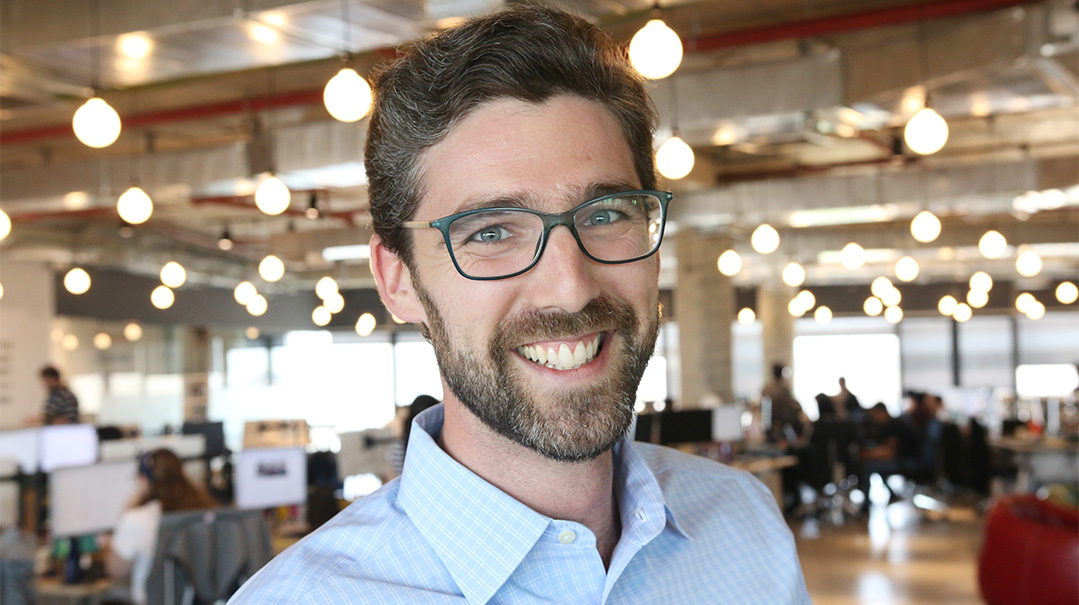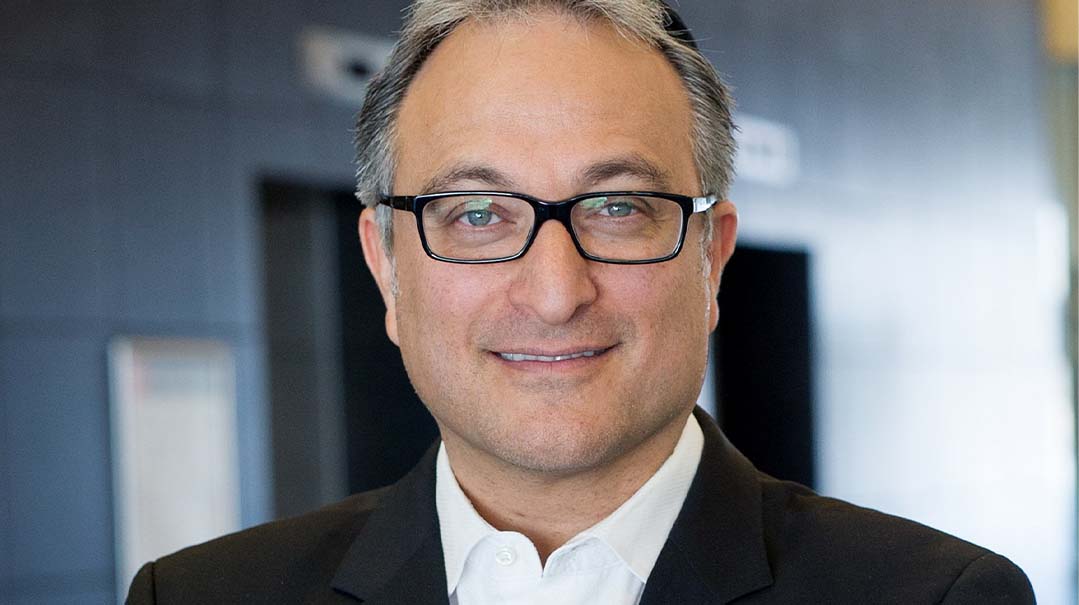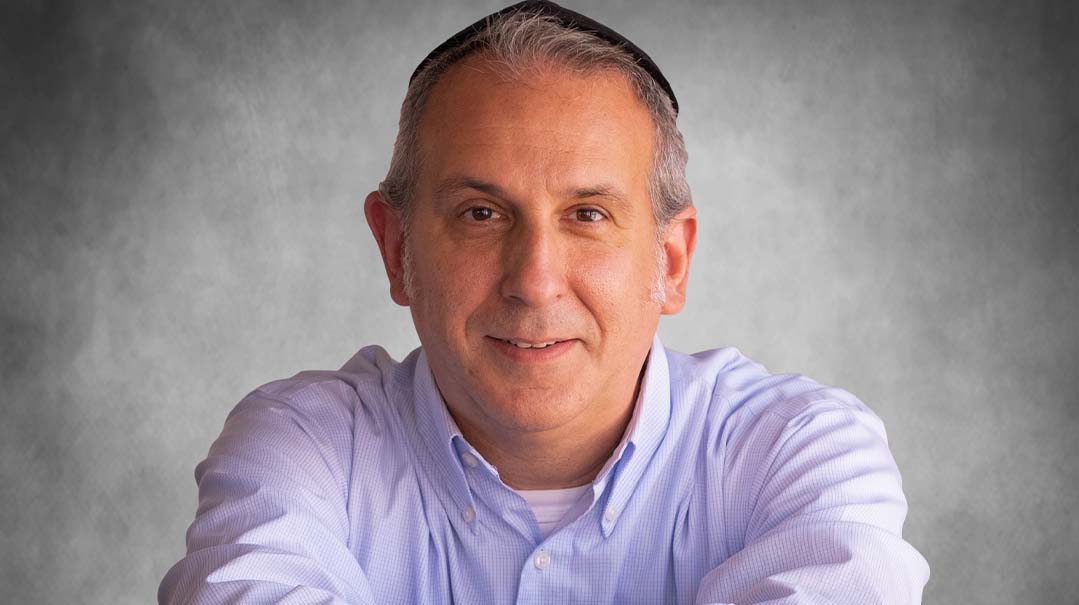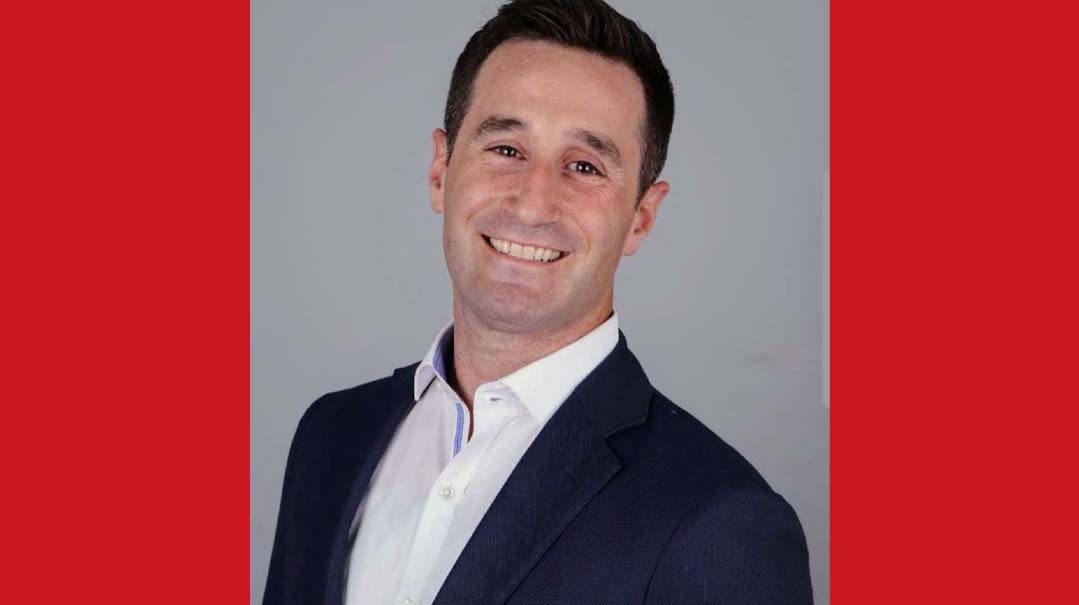Work/Life Solutions with Yonatan Frankel


Who
Yonatan Frankel, Founder & CEO of Nucleus, a venture-backed start-up that started by building a consumer-focused “anywhere intercom,” a device that lets you instantly video-call family. (It was the first of its kind — before Amazon, Google, and Facebook copied the idea!) Now, they offer NucleusCare, a communication suite for senior living and home-care companies.
What
After receiving a BA in computer science from Yeshiva University, semichah from RIETS, and a JD from Harvard Law School, Yonatan worked as a management consultant at the Boston Consulting Group. Then, when he launched Nucleus in 2013, his experience and pedigree helped him score funding from top investors, including Founders Fund (Peter Thiel), Greylock (Reid Hoffman), and Joe Montana (former NFL quarterback).
Where
Yonatan lives in Bala Cynwyd (outside Philadelphia) with his wife and children, where he also serves as president of the Mesivta High School for boys and on the board of the Philadelphia Community Kollel.
Why
Many years ago, Yonatan and I met in Vancouver when we were both advisors at an NCSY Shabbaton, and I instantly become a huge fan of his. He exemplifies what it means to be a balanced, growth-oriented entrepreneur — from his unwavering daily learning schedule, to his quality family time, to his ambitious business endeavors. He’s also one of the nicest guys I’ve ever met, and I’m therefore appreciative that he represents the frum world wherever his endeavors take him!
1 of 9: What opportunities or personalities played a role in your career?
Without a doubt, what gave me the audacity and courage to become an entrepreneur was watching my father quit his safe job as a cubicle-dwelling accountant at an insurance company to start his own small business.
My father worked from a home office, so I remember the up days and the down days, the successful business trips and the ones where he came home empty-handed; I had a front-row seat to the roller-coaster ride that is entrepreneurship.
But more than the trials and travails, I remember the benefits. Working from home meant my father was always present, both physically and emotionally. And running his own business meant he could craft it around a lifestyle that suited him — with time for learning and family as the core.
3 of 9: What do you do to relax, recharge, or simply have fun? How do you make time for that, and how often?
One of the best parts about running your own business is that you’re in charge of your own calendar. If you value something, you make sure to schedule around it.
In the mornings, I never schedule meetings until after my chavrusa. In the afternoons, I try to be available when my kids come home from school. And I may occasionally be guilty of adding an ambiguous “Hold for very important meeting” to my calendar when there’s open hockey at our local ice rink.
Everyone has a different way of relaxing. But in order for it to be true relaxation, you need to be fully present and not checking your phone for updates or business emergencies.
4 of 9: What was your most resounding failure? What did you take away from that experience?
While I’ve been responsible for too many failures to count, my most resounding one occurred about 18 months ago. At the time, Nucleus had a lot of traction in the consumer market: We had great investors, were selling a lot of devices, had no visible competition, and were working on our 2nd generation product. Then, within the span of a few months, Amazon (with whom we had previously partnered), Google, and Facebook all released or announced competitive products. The failure here was both as a business — it’s impossible to compete directly with tech giants — but also personally, as it was my fault that we hadn’t correctly assessed the threat and responded correctly. In particular, I fault myself for some mistakes that cost us a few months of growth; had we successfully developed a brand name and network effect prior to the tech giants entering the market, perhaps we would have been better able to withstand the competition.
That said, within every failure is also opportunity. We took the opportunity to reassess the marketplace and decided that rather than compete with the tech giants in the consumer space, we would develop a unique B2B solution called NucleusCare for senior-care facilities and home-care agencies to help them better communicate with their patients. In addition to the improved competitive landscape, it’s also really rewarding to help seniors stay healthier and more connected.
7 of 9: If you were asked to deliver a TED Talk watched by 50 million people, what topic would you choose to speak about? Why?
“The Benefits and Accessibility of Starting Your Own Business.”
Unfortunately, tuition payments and mortgages that are requisites of frum life funnel many of us into safe, stable careers that may pay the bills but come with other steep trade-offs: difficult bosses, long hours, or the inability to attend family simchahs or your child’s Chumash play because of work commitments or lack of vacation days. I strongly believe that more frum people should start their own businesses so they can craft their desired lifestyle — with family and Torah at its core — instead of trying to fit their lifestyle around their work commitments.
This is where the “Accessibility” half of the title comes into play: Starting a business is a lot easier than it sounds. You can often experiment with or test a business idea while holding down a full-time job, lessening the risk. Once you’ve “de-risked” the idea, it’s often possible to raise capital or generate enough cash flow to be self-sustaining, enabling you to make the leap to doing it full-time. Furthermore, your idea doesn’t need to be earth shattering or the next Google: If you buy a widget for $1 and sell it for $2, that can be a pretty successful business, too. No need to reinvent the wheel.
Lastly, to be successful, you don’t need to be Steve Jobs or Jack Welch — or even the guy your children’s school is named after. If you’re hardworking, competent, and personable in your current role, you already have many of the necessary skills to run your own business.
If there’s any takeaway your readers get from my answers, I hope it’s that they likely possess the talent, wherewithal, and ingenuity to start their own business, and that doing so is a highly worthwhile goal. And while there are certainly risks involved, I’ll leave those to someone else’s imaginary TED Talk. In the meantime, if anyone wants help or advice on how to get started, they should feel free to reach out to me and I’m happy to do my best to point them in the right direction.
8 of 9: Can you share a time when you had to navigate the tension between your deepest values and the business world?
Counterintuitively, the tensions that arise are not surrounding major issues; it’s obviously not even a hava amina that you would steal investor money or go to a conference that entails chillul Shabbos. Rather, the issues that arise — or to quote Rav Dessler, your nekudas ha’bechirah — surround the myriad everyday occurrences you face: Do you pretend to laugh at an inappropriate joke? Do you make sure you’re expensing your receipts appropriately?
One major issue that can be a struggle is the balance between emunah and hishtadlus. As an entrepreneur, your default mindset is to chase down every lead. As someone who took on investor money, I also have a fiduciary duty to do my best. But at some point, you cross the line between regular hishtadlus/“start-up hustle” and a lack of emunah.
I can think of one time I crossed the line: I decided to fly to San Francisco for the entire Chol Hamoed Succos because our PR firm wanted to set up some introductory meetings with journalists. This was right before we launched, and even though I probably could have rescheduled most of them and probably could have sent someone else, I decided I couldn’t risk either of those options. I went, and of course half the meetings were canceled last minute, my Chol Hamoed was essentially ruined, and because I took the red-eye back, I was tired all of Yom Tov. It was a very good reminder about Who really determines success or failure.
9 of 9: If you were advising a young man/woman hoping to launch a career as an entrepreneur, which “do’s” and “don’ts” would you share?
If you ask any honest businessmen how they achieved success, you will inevitably hear them credit “luck” — or, as we know to call it, Hashgachah pratis — as a critical factor. That said, there are structural tips that can greatly increase your chances of success, including:
DO choose an industry or vertical that has a greater chance of success. Capital-intensive businesses are high risk. Client-service businesses can mean unpredictable hours. Can you start a self-serve, recurring-revenue business? With a little hatzlachah, you can have a nice parnassah pretty quickly. (Look into Michael Porter’s five forces framework, a highly popular business school topic, for a better idea of a defensible business.)
DO calculate expected values. You often need to choose between multiple options with unknown outcomes. Should you make an investment? Should you hire this individual? When assessing risk, calculate both your chances of success as well as your magnitude of success or failure before making a decision.
DO show up in person. There’s probably a mussar lesson embedded here somewhere, but because e-mails/calls are so easy to do, they are easy to forget or ignore. If you care about a deal or partnership, you need to show up in person. Because technology is centered in San Francisco, I will fly there for a single important meeting rather than resort to a phone call or video (just not on Chol Hamoed!). When I needed to negotiate a critical point with our manufacturer, I flew to Taiwan for the day to do it in person. While I don’t always succeed, the expected value of going and being there in person is extremely high if the deal is significant enough.
DON’T be afraid or abashed about your boundaries as a frum Jew. I used to make vague excuses when scheduling around Yom Tov or chavrusas, but as I gained more self-confidence, I realized that there is unfortunately a vacuum of integrity in the business world, and your colleagues and partners will respect you for sticking up for something you believe in.
Originally featured in Mishpacha, Issue 742. Moe runs business development for Hometalk, where he spearheaded influencer partnerships that generated 700 million video views. He holds an MBA and semichah, and published his first book, The Gift of Stuttering (Mosaica Press, 2016). He also teaches a daf yomi shiur, produces inspirational videos for Aish.com, and gives lectures to audiences worldwide. Moe lives in Ramat Beit Shemesh with his wife and children.
Oops! We could not locate your form.













